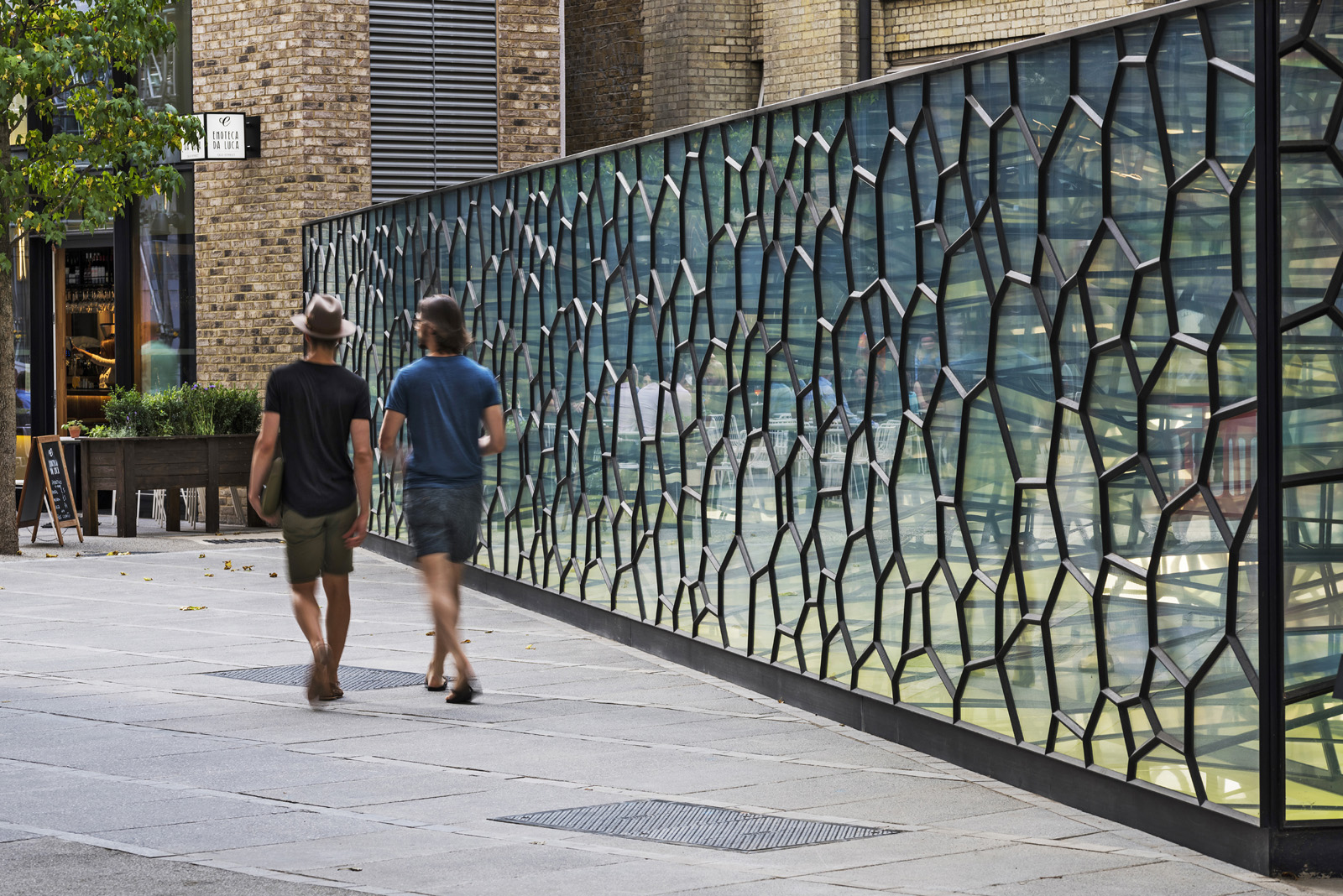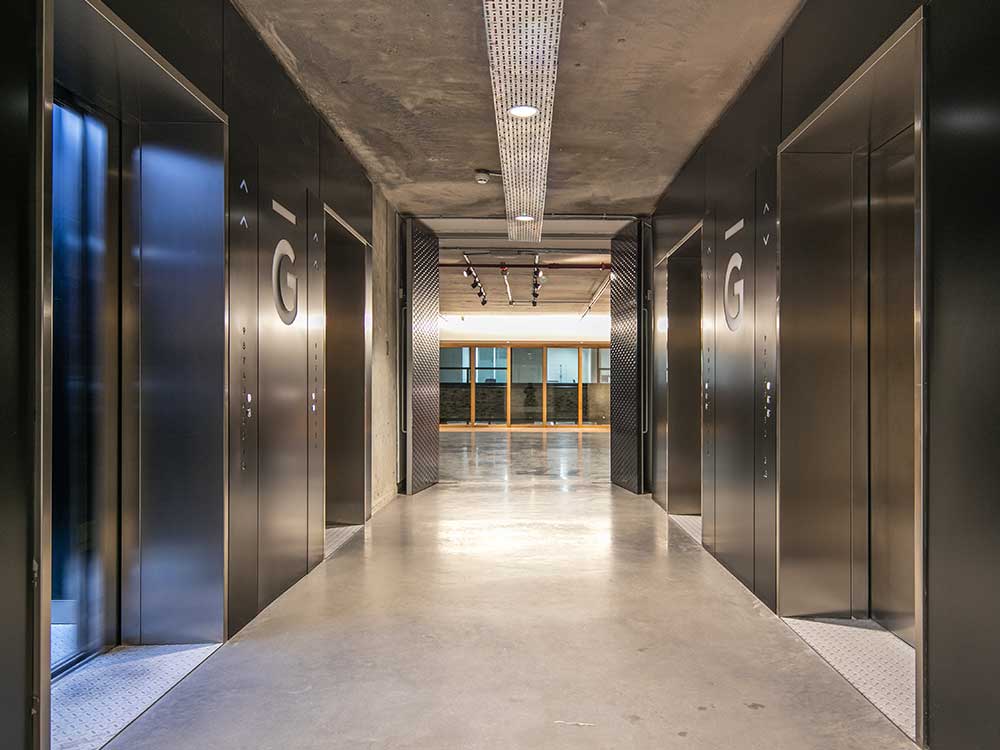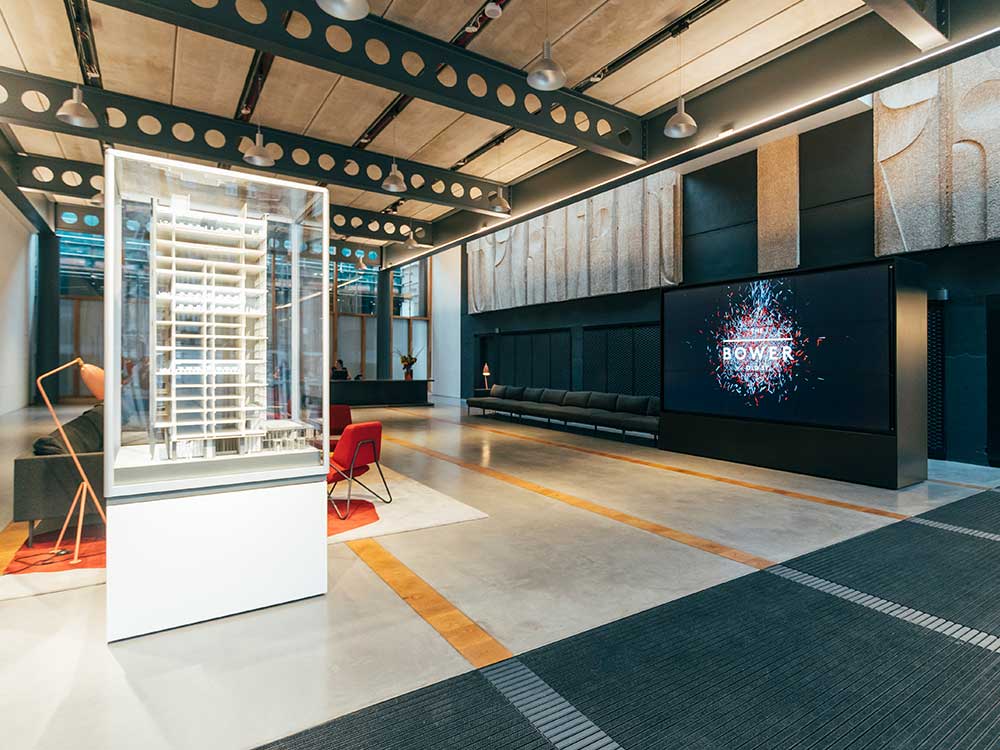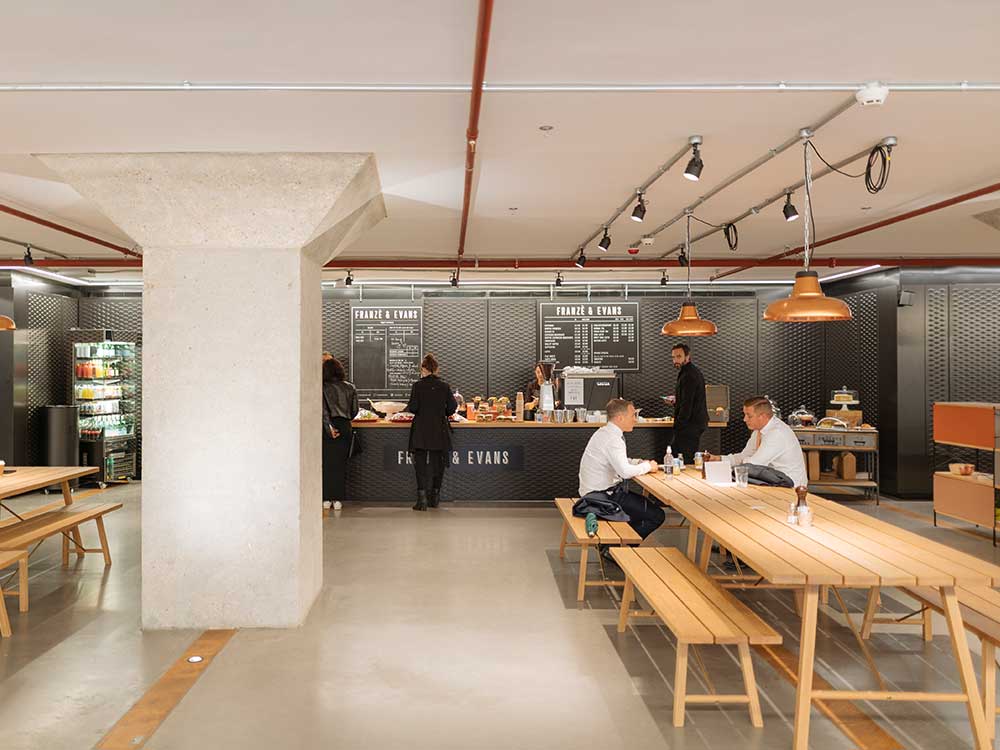
Clyde Shopping Centre, Glasgow

Milton Park Innovation Centre, Oxfordshire
Sustainability at The Bower, London
At The Bower in Old Street, London, the owner Helical PLC and managing agent Ashdown Phillips ran an innovative tender process that led to the introduction of bio-enzyme cleaning. All products are now distilled on-site, avoiding single-use plastics, cutting carbon emissions and delivering healthier cleaning performance with less use of hazardous chemicals. Following the success of this pilot, the team is now exploring opportunities to rollout bio-enzyme cleaning at additional sites.

Situation
The Bower is a landmark quarter in Old Street, London, offering 30,000m2 of modern offices and a vibrant restaurant and retail destination. Designed by architects Allford Hall Monaghan Morris, it is owned by Helical and managed by Ashdown Phillips. Both Helical and Ashdown Phillips understand that, as we move towards a net zero carbon world, we need to change how buildings are built and managed. Their sustainability pledge for The Bower includes reducing environmental impacts and improving health and wellbeing.
To support this pledge and their commitment to provide best-in-class services to customers, Ashdown Phillips took a radically different approach to tendering for cleaning services at The Bower. They asked prospective suppliers to complete a series of tasks and challenges, rather than delivering presentations. They also restricted tender teams to CEOs, managing directors and key operational staff, instead of salespeople. Their aims included:
• Gaining real insights into the way potential cleaning services partners interact as a team and respond to challenges.
• Identifying opportunities to set new benchmarks in sustainability – reducing environmental impacts and improving health and wellbeing.
Through this process, Green Zone Cleaning and Support Services Ltd were reappointed at The Bower. Their commitment to sustainability and plans for bio-enzyme cleaning were deciding factors.Actions
The Bower had already switched from chemical-based to plant-based cleaning products. However, these still generate environmental impacts, as crops are grown, harvested and then manufactured into products and transported, usually in single-use plastic containers.
Through the new bio-enzyme cleaning regime, super-concentrated solution is now delivered to The Bower, where a small distillery has been created on site. Connected to the water system, this distillery automatically converts five litres of solution into 50 litres of cleaning product. This means that bio-enzyme cleaning products are now produced at The Bower and bottled in reused plastic containers.
Bio-enzyme cleaning products use non-pathogenic ‘good’ bacteria to digest dirt, debris and odours. The bacteria do this by producing enzymes that break down certain molecules (waste) into smaller pieces that are then consumed by the bacteria. The ‘good’ bacteria continue to grow and consume the waste until their food supply diminishes – that is, the waste – is gone. This means that when bio-enzyme cleaning products are on a surface, they can continue to work after cleaning has ended, breaking down dirt, debris and viral particles. This is particularly valuable in a global pandemic, when cleaning teams using chemical products have to revisit touchpoints every 15 to 30 minutes, which is harmful for the environment.
Where there are specific waste types, such as grease, cleaning materials can also be formulated with specific enzymes that are known to break them down. In washrooms, specialist bio-enzyme cleaners can be highly effective in mitigating urine odours and other smells.
Financials
The introduction of bio-enzyme cleaning at The Bower was cost neutral. The service agreement costs remain the same but, as products continue acting for longer, this has freed up time for the cleaning team to spend longer in frequently used areas.
Benefits
Bio-enzyme cleaning brings significant benefits versus traditional cleaning practices, as outlined below. This supports the sustainability goals of Helical, Ashdown Phillips and occupiers at The Bower.
Environmental benefits
• 90% reduction in carbon from cleaning, through reduced plastic waste, saving 512kg of CO2.
• 51% reduction in plastic waste, saving 56kg of plastic, using recycled plastic and avoiding single-use plastic through a closed loop approach.
• 18% reduction in transport, through fewer deliveries and lighter weight materials, saving 243kg of CO2.
• 100% biodegradable product, 90% within 28 days.
• All cardboard and plastic packaging recycled.
Health and safety benefits
• Excellent results on porous surfaces.
• Continuous cleaning action.
• Removing odours at their source.
• Less use of hazardous substances, with cleaning products formulated for the lowest possible toxicity.
Bioenzyme cleaning – facilities management benefits
• 66% reduction in product range, from nine to three: multi-surface cleaner, floor cleaner and a specialised product for washrooms as they have a different level of bacteria.
• 15% reduction in storage volume, saving 187 litres.
This article first appeared on betterbuildingspartnership.co.ukThe detail:
- 90% reduction in CO2 for cleaning
- 51% reduction in plastic for cleaning
- Healthier cleaning for occupiers
- Green Apple Award 2021
More information: hello@ashdownphillips.com



